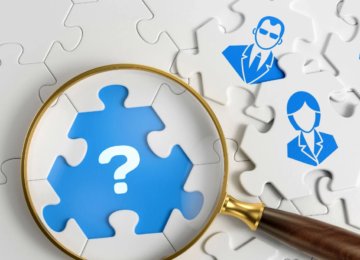Mastering the art of communication stands as a critical skill in professional environments. Challenging conversations can emerge unexpectedly, testing even the most seasoned professionals. When complex dialogues are handled in a robust way, potential conflicts become opportunities for growth and understanding.
Preparing for Meaningful Dialogues
Successful communication begins long before the actual conversation takes place. Professionals must cultivate a mindset of empathy, preparation, and strategic thinking. Integrating emotional intelligence into business settings plays a crucial role in navigating complex interpersonal dynamics.
Emotional Preparedness
Emotional control represents the foundation of effective communication. Professionals who maintain composure during intense discussions create spaces for productive exchanges. Recognize personal triggers and develop strategies to manage emotional responses constructively.
Strategic Listening Techniques
Active listening transcends mere hearing. It involves complete engagement with the speaker, absorbing both verbal and non-verbal communication. Exceptional communicators demonstrate genuine interest, ask thoughtful questions, and reflect on the underlying messages being conveyed.
Building Communication Confidence
Confidence emerges from thorough preparation and self-awareness. Professionals should:
- Research relevant background information
- Anticipate potential conversation directions
- Develop clear communication objectives
Emotional Intelligence in Practice
Understanding emotional nuances separates exceptional communicators from average performers. Recognize different communication styles, emotional states, and underlying motivations. This insight allows for more empathetic and effective interactions.
Constructive Dialogue Framework
Effective conversations follow a structured approach. Begin by establishing a safe and respectful environment. Clearly articulate intentions while remaining open to alternative perspectives. Focus on mutual understanding rather than winning an argument.
Non-Verbal Communication Mastery
Body language speaks volumes in professional settings. Maintain open postures, make appropriate eye contact, and demonstrate attentiveness through subtle physical cues. Non-verbal signals can either enhance or undermine verbal communication.
Managing Difficult Personalities
Some conversations involve individuals with challenging communication styles. Remain calm, professional, and solution-oriented. Redirect negative energy toward constructive outcomes. Avoid becoming defensive or confrontational.
Conflict Resolution Strategies
Addressing conflicts requires a delicate balance of assertiveness and empathy. Identify core issues, separate emotions from facts, and seek collaborative solutions. Aim to create win-win scenarios that preserve professional relationships.
Cultural Sensitivity
Global business environments demand cultural awareness. Recognize and respect diverse communication norms. Avoid assumptions and demonstrate openness to different perspectives and communication styles.
Psychological Dynamics
Understanding human psychology enhances communication effectiveness. Recognize emotional triggers, communication barriers, and individual motivations. Develop empathy and emotional intelligence as core communication skills.
Practical Communication Strategies
Implement these key strategies to enhance professional communication:
- Practice active and empathetic listening
- Develop emotional self-awareness
- Cultivate a solution-oriented mindset
Continuous Improvement Approach
Communication skills require ongoing development. Seek feedback, reflect on past interactions, and commit to personal growth. Embrace challenges as opportunities to refine communication techniques.
Professional Development Techniques
Invest in communication skill enhancement through:
- Workshops and training programs
- Professional coaching
- Self-reflection and personal assessment
Effective communication represents a powerful professional tool. By developing strategic communication skills, professionals can transform challenging conversations into opportunities for collaboration, understanding, and mutual success.
Professional Communication Tools
Modern professionals have access to various communication tools and techniques. Practice clear, concise, and respectful communication across different mediums. Adapt communication style to specific contexts and audiences. Lucas Birdsall Vancouver emphasizes the importance of authentic and purposeful dialogue. Treat every conversation as a chance for mutual growth and understanding, and take a genuine interest in others’ perspectives. Become an exceptional communicator by practising, being patient, and dedicating yourself to professional and personal growth.












